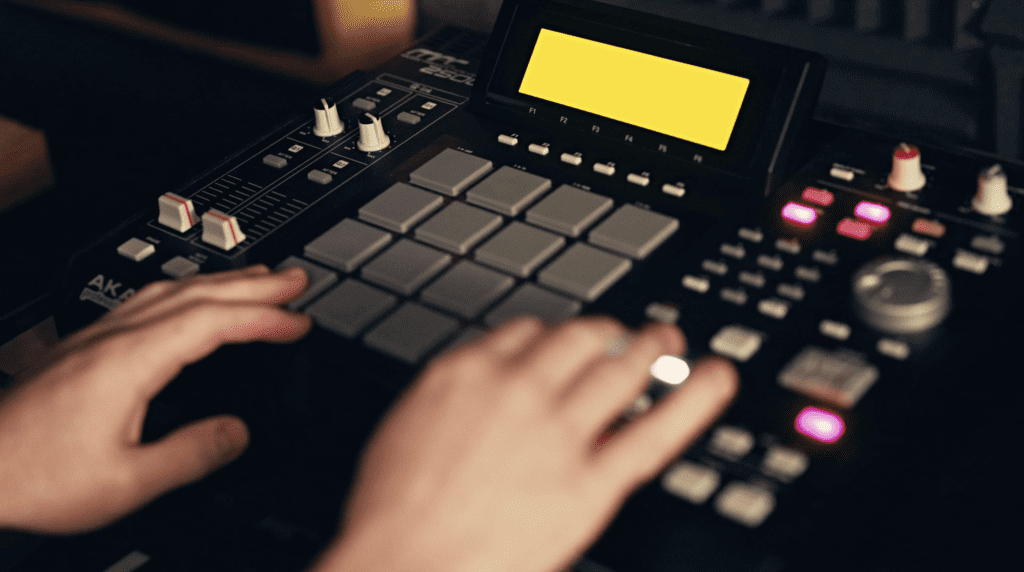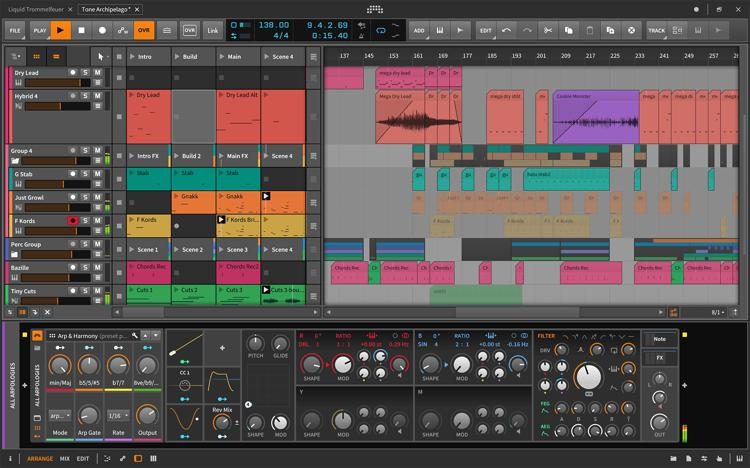Whew, good question. Is anything hard (quiet at the back)? The truth is, the fundamental act of music production has never been easier, but it’s definitely a skill that takes time to grasp. Like anything else, having a goal and knowing what you need to do to achieve that goal is half the battle. Let’s look at what makes music production hard and what makes it easier…
Is it Hard to Learn Music Theory?
There’s a common misconception about music theory, that it’s some kind of stuffy and outdated pastime that’s taught only to give people with no musical talent a way to pretend they’re musical. Just the word reminds people of school music rooms and paintings of classical composers that don’t make music that sounds anything like what we want to make. To listen to a significant number of successful music producers and even musicians, they don’t think about music theory at all — and they seem to be doing alright, so why bother?!
There is a hint of truth in all that somewhere, but it’s pretty important to look at the whole topic from a very broad perspective. Sure, your favourite musicians and producers might have spoken about never thinking about music theory… but how often do you actually think about the physics of riding a bike while you’re behind the handlebars? Talented and well practiced jazz improvisers mightn’t be consciously considering what to play next, but they certainly aren’t randomly pressing keys. That goes for just about everybody that says they don’t care about music theory: music theory is a way of explaining the mechanisms of music, the rhythm, pitch, tone and dynamics of everything we hear in a piece. Just because it hasn’t been learned from a dusty book doesn’t mean that the ‘rules’ haven’t been internalised by everyone that knows to keep time in beats and bars or the difference between a kick and a snare drum.

There are two ways to learn music theory: trial and error and standing on the shoulders of giants. Practically, a bit of both tends to work best. Most people that say they don’t need to know music theory, they just play around and find what works, hit a pretty predictable level. The amount of trial and error it takes to reliably figure out how to play satisfying chord progressions is exponentially greater than the trial and error it takes to make a house drum pattern groove, and there’s a dangerous psychological trap to fall into with a totally trial and error based approach: get too far with it and our egos start to explain our intuited learning as not needing any help, and anything we can’t figure out we end up dismissing as ‘just not how my brain works’.
Having basic music theory can take years off the practice time needed to make songs we’re proud of. Just having things like tempo, time signature, the difference between beats and notes, and how and why scales work the way they do explained in a simple, logical way makes things click and lets us move on to the actual implementation of making music. We made Essential Music Theory to take you from absolutely no knowledge up to a high level in the quickest time possible, with simple video, audio, and graphical explanations to turn weeks and months of trial and error into a few hours of guided learning. Check it out!
Is Beatmaking Hard?
What’s the difference between a music producer and a beatmaker? It depends who you ask, really, but if your goal is to make music for artists to rap or sing on and you’re not particularly focused on creating a polished, radio ready piece of instrumental music all by yourself, then a lot of people will call you a beatmaker. Of course, the definitions are somewhat blurred when it comes to making music that’s beats focused, especially when there is an entire culture of people making and sharing beats to enjoy.

Chopping up samples, selecting hard hitting drums, getting a pumping, coherent sound to things that get heads nodding and fans and fellow beatmakers alike making the stank face is central to beatmaking, and understanding that the techniques used to get you there are focused so much more on the end goal than any highfalutin process is vital. You can be a beatmaker with a good ear, some basic music theory understanding, and passion. Oh, and practice. Here’s the thing: if you define ‘hard’ as ‘can’t immediately be amazing’ with any pursuit, then you’re going to be consistently disappointed throughout life. Everything’s going to seem too hard, because anything worth doing takes time to click. If you instead define hard as gaining the ability to sort out the right decisions from the wrong ones in the service of making conscious your intuitive sense of what makes something ‘good’ to you, then you’re on the right track.
Learning how to use the tools is pretty easy, learning why to use the tools takes a while, knowing when to use them is when you really start getting somewhere. Essential Music Production is our course that’ll take you from complete beginner to confident beatmaker in no time flat, giving you all the information you need about what gear is important, what sampling techniques work, and how to polish your sound without getting into the never ending rabbit hole of perfect mixing, mastering, and so on.
Is Learning a DAW Hard?
A DAW, or Digital Audio Workstation, is a piece of software that acts as the central hub for most people’s music production pursuits. Modern DAWs do everything from recording and sequencing audio and MIDI note data, contain virtual instruments and effects, full mixing desks, and mastering processes that make them capable of exporting a song ready to be sent straight to a bestselling album. What’s more, they act as hosts for ‘plugins’ that extend their functionality with more instruments, effects, and utilities. Many DAWs can create sheet music, be used both live and in the studio, and be the ‘brain’ for a million dollar studio’s worth of external hardware.

Don’t worry though! Most of the major DAWs have been around for going on 20 years if not 30 now, and so they’ve built up a lot of functionality over time that’s allowed them to be true swiss army knives. There isn’t a music producer in the world that uses every single feature of Apple Logic Pro or Ableton Live, and what’s more, learning the fundamentals of the music production process will allow you to transfer that knowledge to pretty much any DAW very quickly. The key is to use a DAW as a tool, and understand what’s necessary to actually get something finished. The great thing about the mature feature set of the established DAWs is that if you come up against something you want to do but don’t know how, there’s probably a feature built in to the DAW somewhere that’ll make it easy — but there’s no point learning about it until you realise you need to!
We’ve created Ableton Live 11 Turbo Start to take you from absolutely no idea about how a DAW works to confidently making finished productions in a matter of hours with our innovative video, audio, graphical and bulleted learning environment. Take a look to see just how quickly you could be learning when we strip away all the things you don’t need to be looking at on day one and introduce them in a sensible order!
Make Learning Music Production Easy
That’s what we’re here for at How to Make Music! Whether it’s Essential Music Theory, Essential Music Production, or Ableton Live 11 Turbo Start, our innovative and accelerated learning environment will give you the knowledge, skills, and confidence to become a music producer — all at incredibly affordable prices. You can even split your payments with Klarna to make things even more accessible! Take a look at the Essential Music Production video below and check out our courses to learn more!


